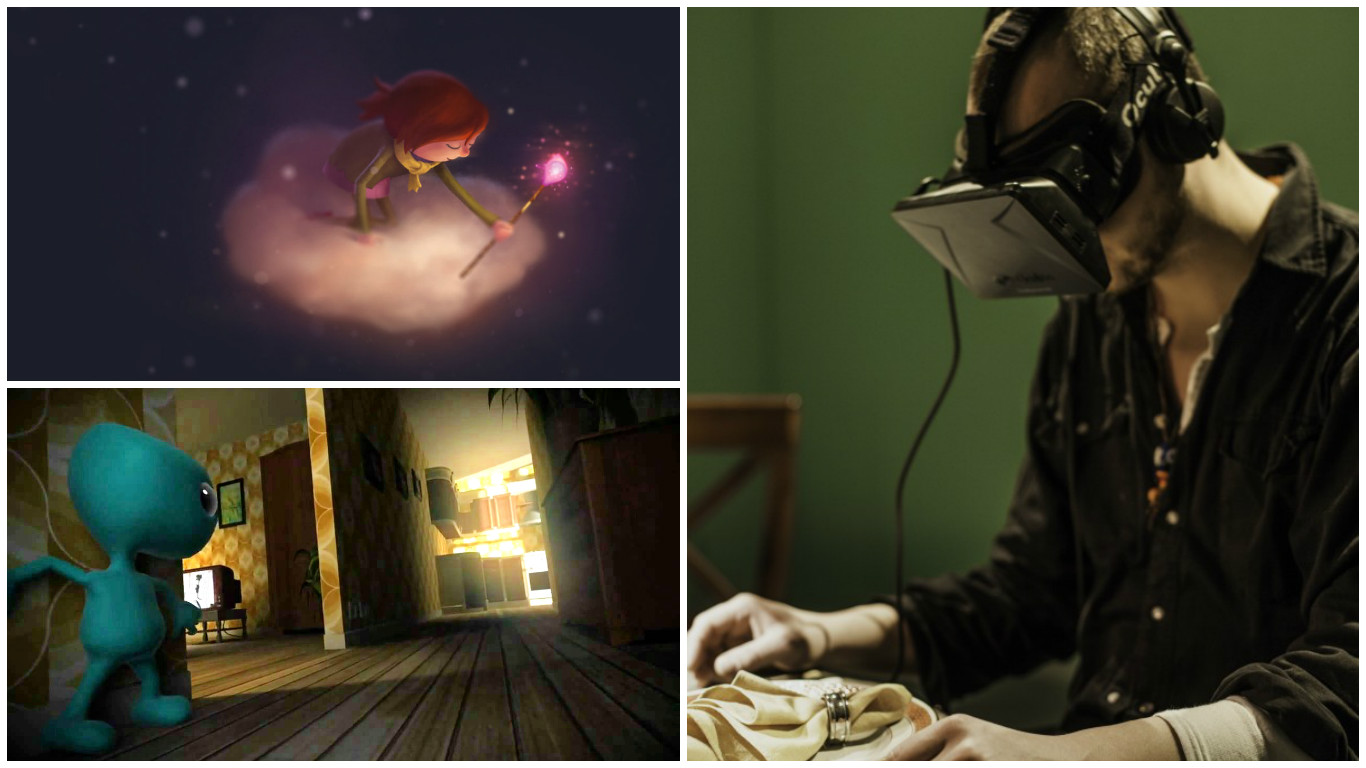
- Industry
Cannes (Tentatively) Embraces Virtual Reality
Something new happened at the 69th Cannes Film Festival – for the first time in its history the festival offered a selection of virtual reality shorts and a pavilion dedicated exclusively to the new technology. Included in the VR slate were Invasion! , an animated six-minute short by Madagascar co-director Eric Darnell ; San Francisco’s Penrose Studios’ Allumette, based on Andersen’s “The Little Match Girl”; the “first person reality short film” The Doghouse by Denmark’s VR studio Makropol; and Giant, a “virtual reality experience of war” by Milica Zec and Winslow Tuner Porter III that had already raised quite the buzz at Sundance. To emphasize the connection between this year’s edition of Cannes and the new tech, a VR headset was included in the Market’s welcome bag.
“VR movies are a new art form, wholly different from cinema, a stage play or the opera that came before”, says Penrose’s Eugene Chung on the studio’s website. “We see ourselves not only as storytellers, but also as VR world builders.” Eric Darnell has a similar stance: “ VR is not an extension of cinema, but its own thing, a brand-new language”, he told Reuters.
Not everyone in Cannes was as enthusiastic about the exploration of virtual reality for storytelling. “I think we’re moving into a dangerous medium with virtual reality, Steven Spielberg told The Guardian at the première of his The BF. “ The only reason I say it is dangerous is because it gives the viewer a lot of latitude not to take direction from the storytellers but make their own choices of where to look. I just hope it doesn’t forget the story when it starts enveloping us in a world that we can see all around us and make our own choices to look at.”
Nonetheless, Spielberg has signed on as an advisor to The Virtual Reality Company – one of the pioneers of the VR/cinema mind meld- and, according to the company’s co-founder Robert Stromberg, the Golden Globe-winning filmmaker (and recipient of a Cecil B. deMille award) is exploring the tech’s capabilities with the goal of creating his own VR narrative piece. Spielberg’s adventures in the brave new world of virtual reality have already led him to come on board as director for Ready Player One, an adaptation of Ernest Cline’s eponymous bestselling novel about a virtual reality world named Oasis.
Cannes’ tentative embrace of narrative virtual reality is part of a whole trend that has already taken over other festivals this year. Sundance and Tribeca had a more enthusiastic approach to VR. Tribeca featured a Virtual Reality Arcade with 18 titles in genres as varied as documentaries, live action fiction and animation. Sundance created a special sidebar dedicated to VR in its New Horizons section, with an equally diverse selection of 31 titles – and Park City hosted a variety of lounges sponsored by the three main purveyors of VR headsets, Oculus, Samsung and HTC.
The migration of VR from the gaming world – where it’s been a staple for a long time –into narrative storytelling has been encouraged precisely by this rapid growth in affordable hardware. So far independent filmmakers and VR studios like VRC, Penrose and Makropol have taken the lead in creating narrative content for these new platforms, but the big players are also exploring the potential of the new tech. Disney has created an interactive 360 video for The Jungle Book (available exclusively in select IMAX theaters in the US) and has unveiled Star Wars: Trials on Tatooine, labeled “a Star Wars VR experience “for the HTC Vive headset. Fox is also hot on the VR trail with The Martian VR Experience, a three-minute interactive piece created by The Virtual Reality Experience and the Fox Innovation Lab that allows the user to fly over and experience the surface of Mars.
Expect to see VR all over the upcoming ComicCon, and making inroads in the fall festival cycle- this trend has just begun. As movies aim to offer more and more unique and immersive experiences to retain and grow their audience VR seems like the logical next step.

